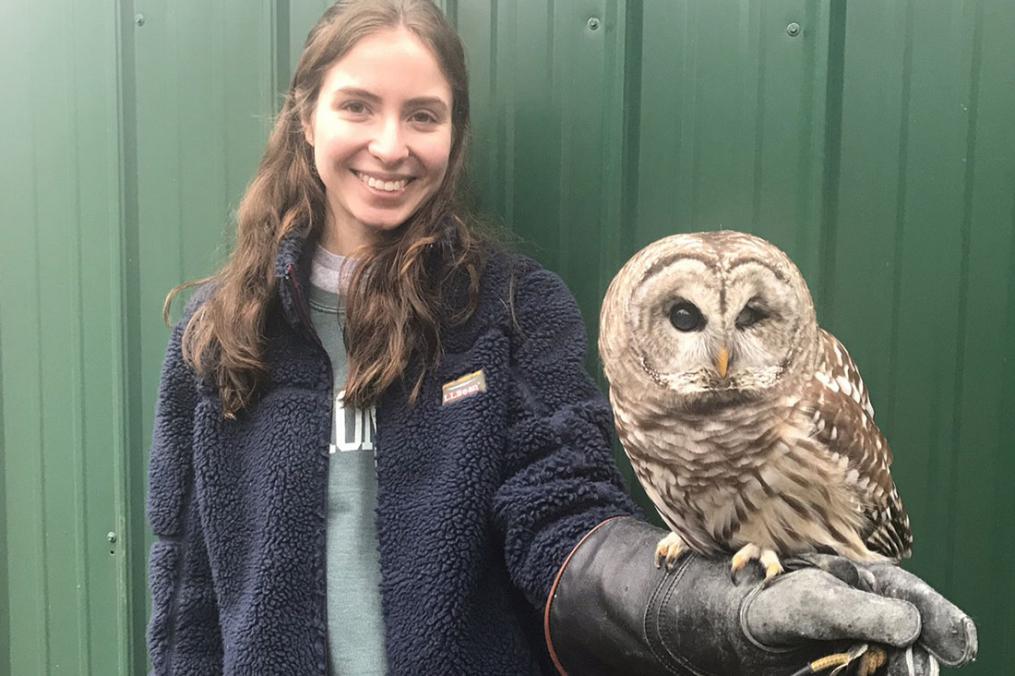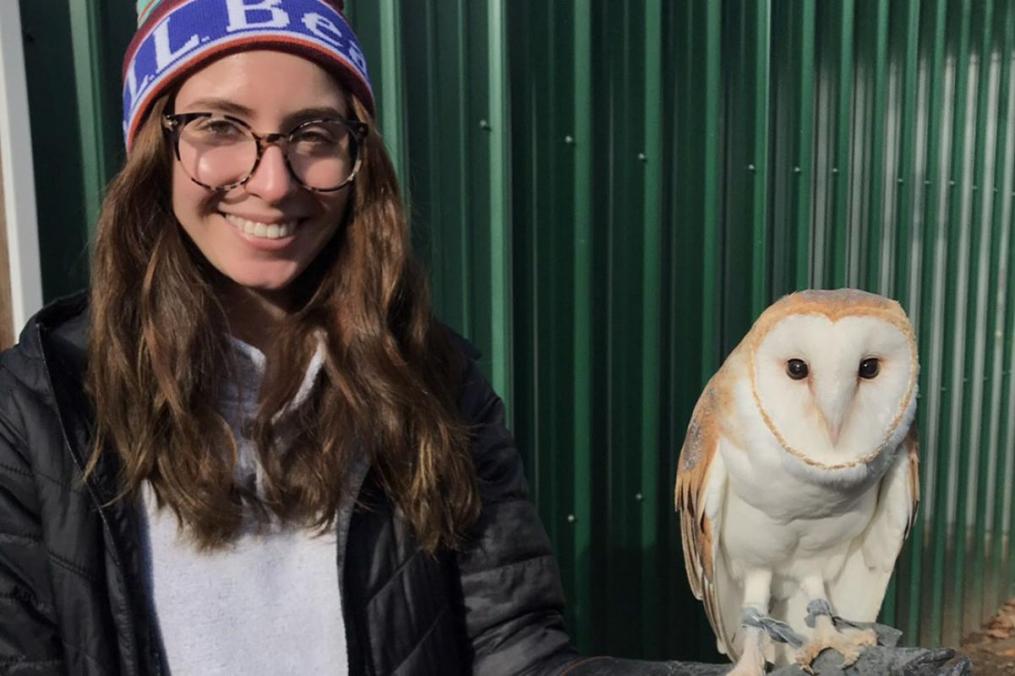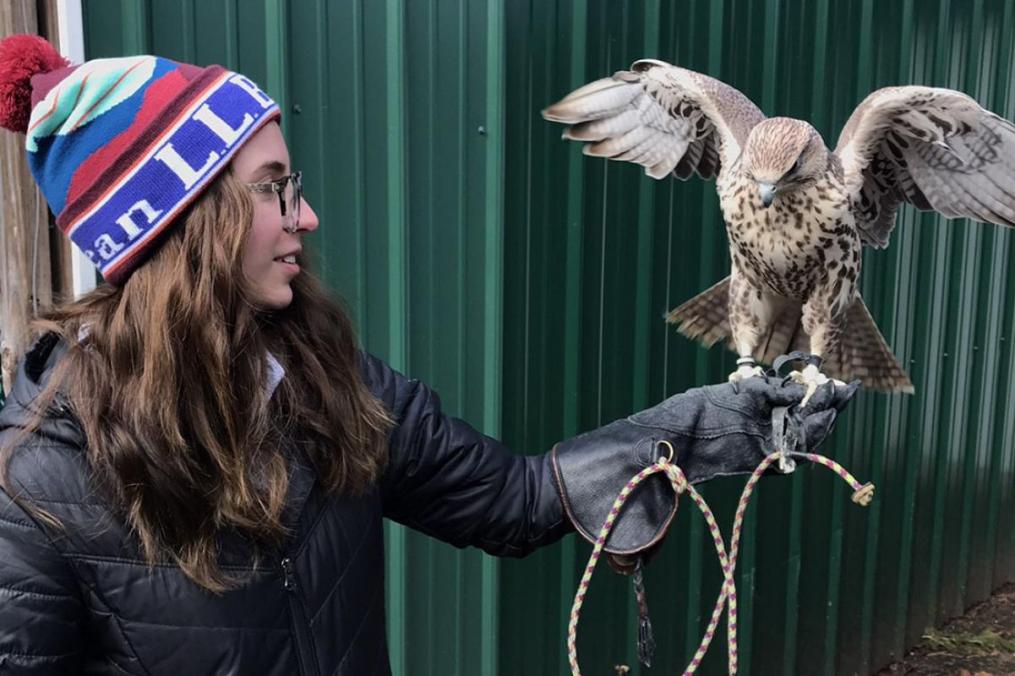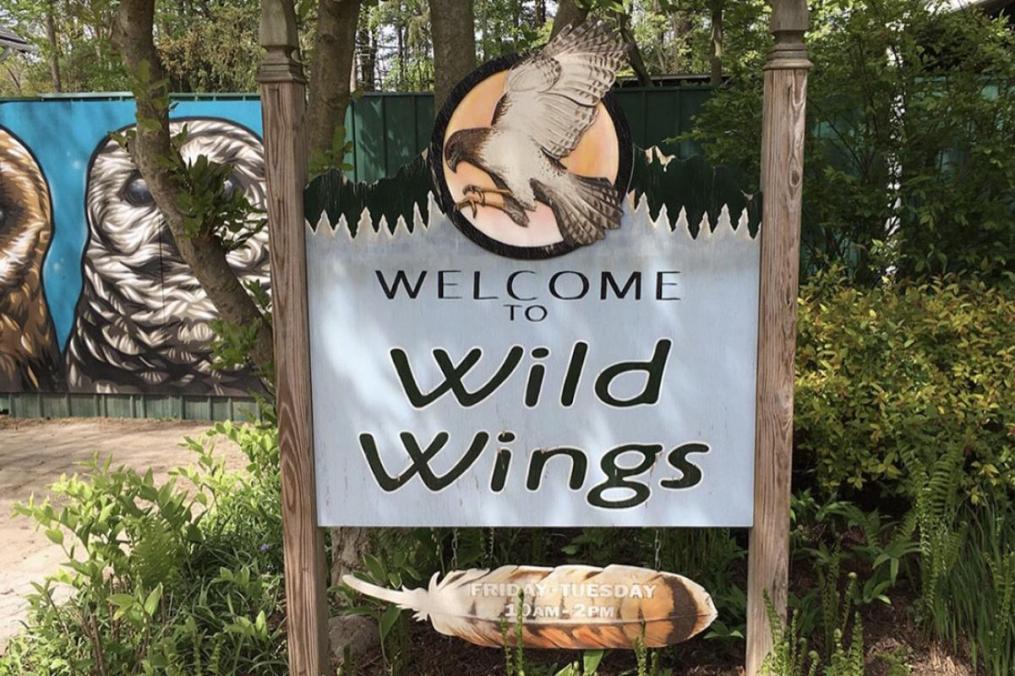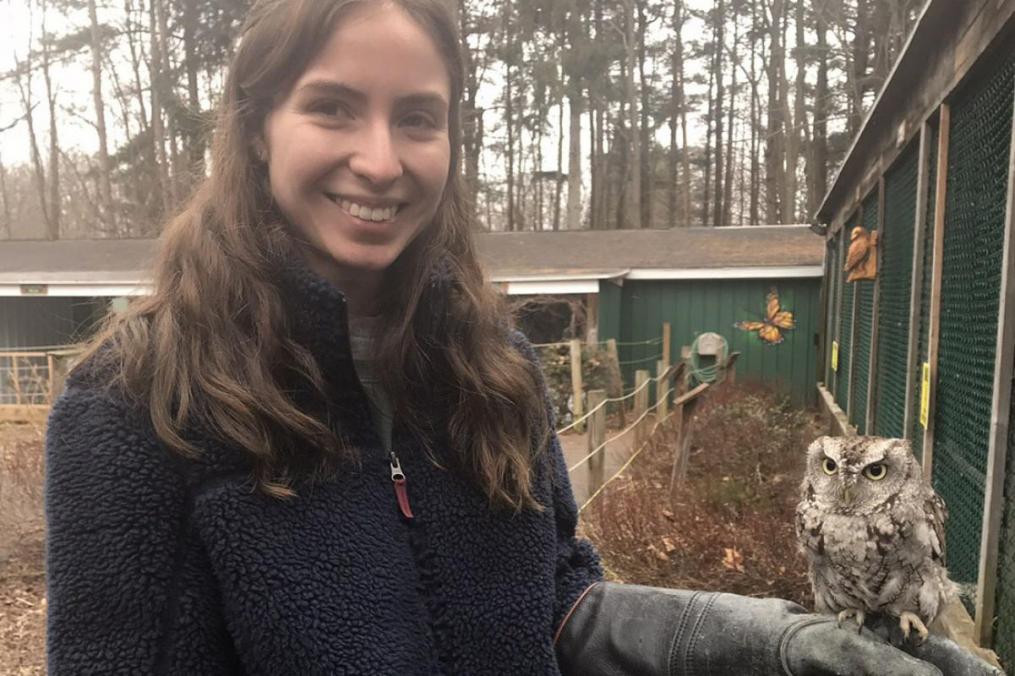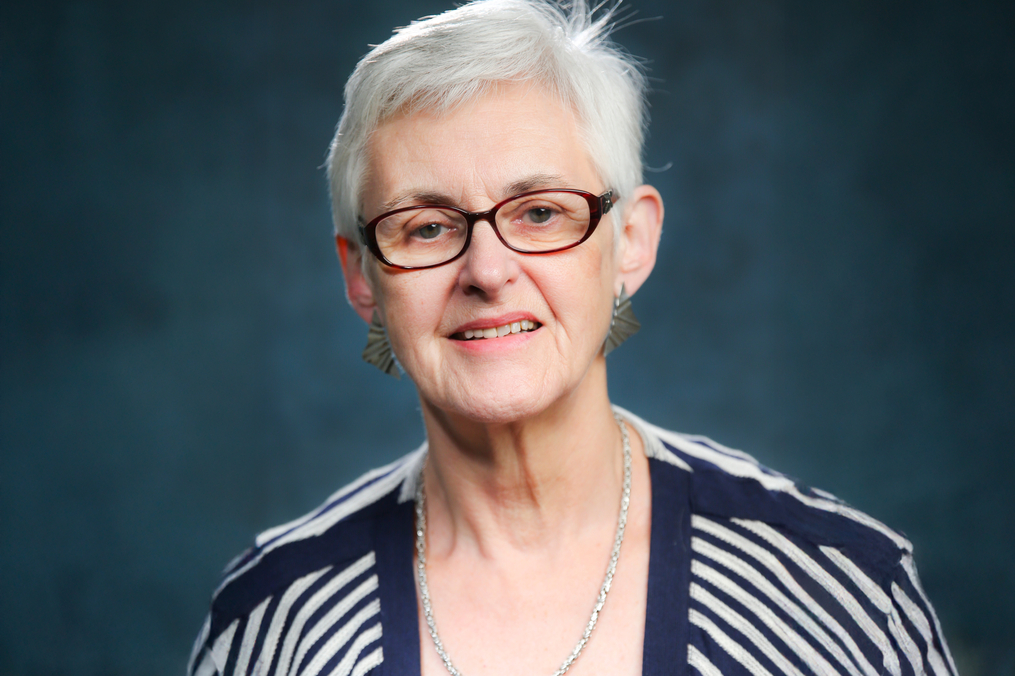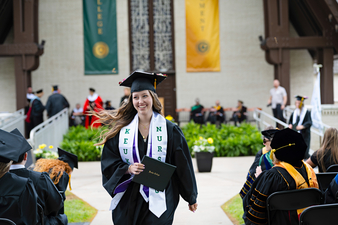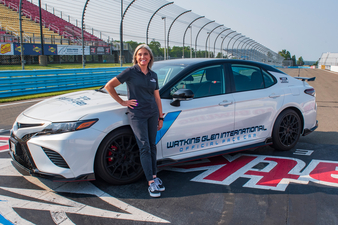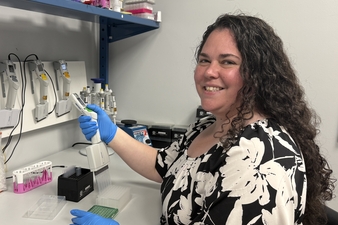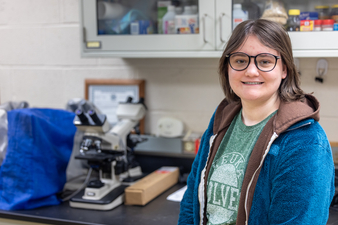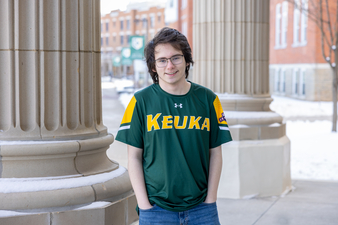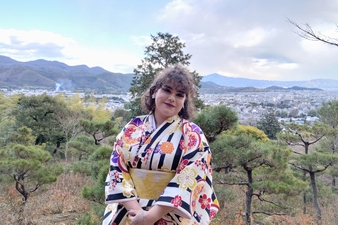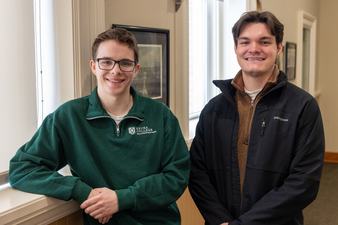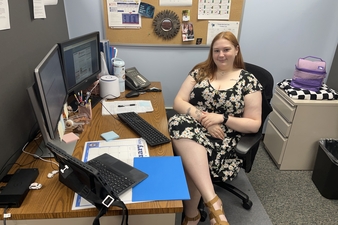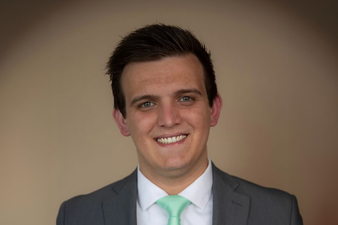Grace, an environmental science major from Geneva, is a regular volunteer with Beverly Animal Shelter in Waterloo, where she helps care for the animals housed there. While familiar with taking care of the canines and felines housed at the shelter, Grace wanted to learn more about a different kind of shelter—an animal sanctuary.
So, she thought spending some time at Wild Wings Inc. in Honeoye Falls would fit the bill. Wild Wings teaches environmental stewardship through programs featuring its resident raptors as teaching partners.
“Wild Wings is a bird-of-prey sanctuary,” says Grace. “All of the animals are permanently injured and can’t be released back into the wild, even after rehabilitation. The work involves a lot of cleaning, and sorting out food for the animals.”
Her responsibilities included cleaning enclosures, and bringing water and food to the more-than-three dozen birds. She also recorded data on each bird, such as how much food wasn’t eaten, or if any pellets remained. Pellets are masses of undigested parts of a bird’s food that some bird species occasionally regurgitate.
She also learned how to handle the birds and discuss them with the public. One of the birds she handled was a barred owl that had been hit by a car.
“He now has detached retinas and is blind, and one eye is sunken,” says Grace. “Visitors wouldn’t be able to see his injuries while he is in his enclosure, so bringing him out gives the sanctuary an opportunity to talk to the public about watching out for wildlife while driving.”
Another bird Grace helped care for was a gyr-saker falcon, a hybrid bird used by a falconer as pest control. This one flew into an electric wire and suffered wing injuries.
Grace says one thing she will always remember from her Field Period® at Wild Wings will be her very first day.
“I knew I was going to work at a bird-of-prey sanctuary, and I expected a lot of cleaning of enclosures,” says Grace, who helps clean the enclosures at Beverly Animal Shelter. “However, I didn’t put two and two together and realize I would be cleaning up their mess from eating—which is bloody, half-eaten rats. I got used to it, but I’ll have never forget the first day having to clean guts and blood.”
In addition to handling the barred owl and the gry-saker falcon, Grace met Barf, a turkey vulture.
“We don’t think of wild animals as having individual personalities, but they do!” she says. “Barf has a hole in the back of his enclosure. When you’re walking through the back of the enclosures, Barf will hear you and put his beak through the hole to get attention. It’s amazing how much personality these birds have.”
Grace says her Field Period® honed the direction she wants to follow in her career.
“My Field Period® experience confirmed that I would like to pursue research, and that advocacy and education is not my thing,” says Grace. “The greatest benefit I got from my Field Period® was getting experience in my field, and being able to work with such amazing animals.”


